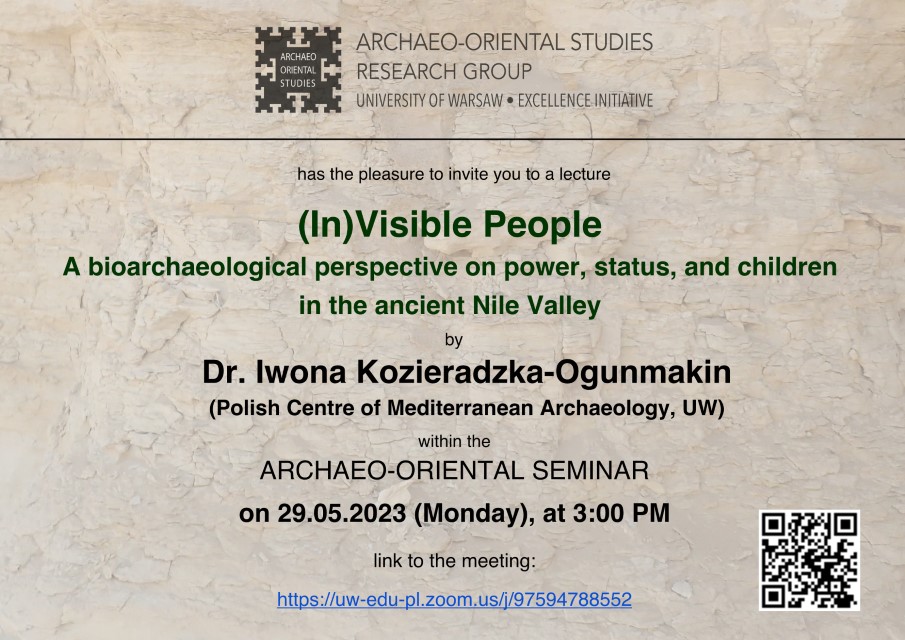This month’s second archaeo-oriental seminar will also be devoted to bioarcheology. Dr. Iwona Kozieradzka-Ogunmakin is going to present a paper entitled “(In)Visible People. A bioarchaeological perspective on power, status, and children in the ancient Nile Valley”.
Abstract: Until recently, children as much as women in the past were on the fringes of archaeological research, deemed largely unworthy of scholarly interest, bystanders in a geopolitical arena dominated by the men in power. Today, their lives, roles, and contributions to ancient societies are made visible through multidisciplinary studies and approaches that bring forth previously invisible demographic groups.
In many cultures, past and present, children often remain invisible and voiceless, unless born into social élite and royalty. Ancient Egyptian statuary and pictorial representations of children offer a glimpse into the life and treatment of children according to their social standing. Alongside written sources, these are commonly used to reconstruct ancient childhoods but say very little, if at all, about individual life experiences, of which we can learn a great deal more through the study of physical remains of children.
From birth to puberty, children had been exposed to and their lives shaped and affected by various factors, including their living environment, diet, disease, access to and provision of care, social attitudes, and their social standing. Using the most recent findings, I will discuss limitations in investigating ancient childhoods, and how the study of physical remains uniquely enhances our understanding of past lives and, consequently, leads us to re-evaluate our previous interpretations concerning children in the past.
The seminar will take place on Monday, 29th May, at 3 pm UTC+2 on Zoom: LINK
Read more about “Archaeo-Oriental Studies”.

